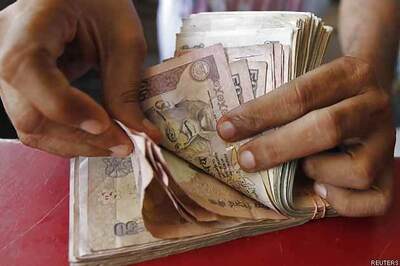
views
In today’s interconnected world, inclusive leadership is not only essential but also demands urgent action. It drives innovation, creativity, and impactful change while fostering sustainable decision-making and outcomes. As India takes the helm of the G20 Presidency, there is a growing movement towards women-led development, recognising the pivotal role women play in driving social and economic progress.
But here is the problem. Women make up a majority of the health workforce but the lack of women in leadership positions in healthcare is a critical issue that affects not only gender equity but also the quality of care provided. They form almost 70 percent of the global health and social workforce but it is estimated they hold only 25 percent of senior roles. Women continue to remain significantly underrepresented in senior leadership roles, particularly in the health sector. Several factors contribute to this disparity, including unconscious bias, gender stereotypes, and systemic barriers to career advancement. Addressing this issue is paramount for improving healthcare outcomes and achieving gender equality. It is also crucial to recognise the role of intersectionality in women’s leadership and development, providing a framework for understanding diverse experiences and fostering inclusive policies and practices.
Intersectionality is a concept that was first introduced by Kimberlé Crenshaw in 1989. It refers to the interconnectedness of social identities, such as race, gender, class, and sexuality, and how they intersect to create unique experiences of discrimination and oppression. She argued that intersectionality is a way to understand and address the complex and interlocking systems of oppression that affect individuals with multiple marginalized identities.
Equity in healthcare delivery has been defined as equal access to preventive, promotive, and curative health services to the whole population, irrespective of residence, gender, caste, economic strata, and other factors. India’s healthcare is not equitable. Not everyone has equal access, and it is imperative for us to reflect on who does not have access and what we can do about it.
The findings of the National Family and Health Survey (NHFS)-V data released last year reveal that several communities in India continue to remain vulnerable and have distinctly lower healthcare outcomes compared to the national average. For example, we have found that Muslim women report a higher incidence of non-communicable health problems, with 2.9 percent being detected with diabetes compared to the national average of 1.9 percent. Also, only 31 percent of Muslim households had access to health insurance. We also find that women from the Scheduled Castes (SC) and Scheduled Tribes (ST) are more likely to be undernourished than women from other social groups. NFHS-5 data shows that the prevalence of underweight among SC and ST women is much higher compared to women from other social groups.
These staggering numbers highlight the deep disparities in access to healthcare that are further compounded by the lack of education, sanitation, and nutrition that are typically faced by these communities. It begins right from the limited availability of healthcare facilities for marginalised communities, particularly in remote areas where clinics and hospitals are scarce or inaccessible, forcing them to travel long distances for even basic healthcare services. Financial constraints further impede their access, creating additional barriers to care. Moreover, cultural and social norms play a significant role, with discriminatory practices against women prevailing in some regions, leading to the neglect of their health concerns. While there have been numerous welfare schemes introduced, India still needs to streamline efforts to become truly inclusive.
Inclusive leadership that incorporates social security can secure the participation of underrepresented communities. A notable example is Canada, where Prime Minister Justin Trudeau announced the country’s official endorsement of the International Decade for People of African Descent on the eve of Black History Month in 2018. This endorsement brought about significant improvements in the lives of Black Canadians. The federal budget was specifically earmarked to remove racial barriers, combat homo- and trans-phobia, and promote gender equality, fostering a more inclusive society. Furthermore, in 2022, Goldman Sachs partnered with Black women-led organisations for their investment initiative ‘One Million Black Women’, committing to $10 billion in direct investment and an additional $100 million in philanthropic support. These actions demonstrate the power of public-private partnerships in advancing social equity and addressing systemic barriers.
India’s G20 presidency presents a unique opportunity to advance the agenda of women-led development and leadership, and gender equality. The nation has made significant progress in promoting women’s empowerment and gender equality, with initiatives like Beti Bachao Beti Padhao, the National Nutrition Mission, and the Mahila E-Haat. India has the chance to showcase these efforts on a global stage and highlight the importance of women’s leadership in achieving sustainable and inclusive growth while creating an enabling environment for women to succeed in all sectors. This will drive progress towards a more just and equitable world for all.
In conclusion, we must take decisive action to promote inclusive leadership and equitable healthcare. By improving hospitals and clinics, implementing digital health solutions, and allocating resources to underserved regions, we can address the diverse needs of different groups. This commitment to inclusivity and sustainable leadership will shape a more just and equitable world for generations to come.
Dr Sabarwal is the South Asia Director at WomenLift Health; Dr Ruha Shadab is the Founder, LedBy Foundation. Views expressed are personal.


















Comments
0 comment